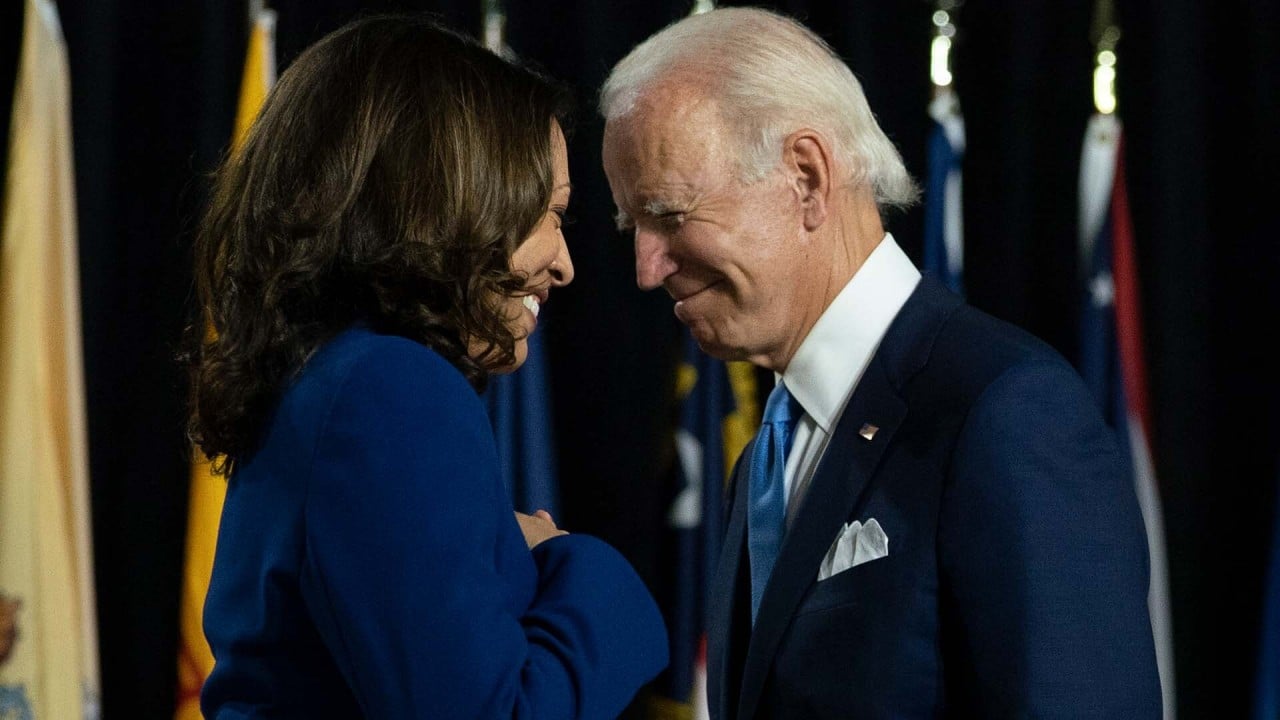
US under Biden set to stay in WHO, but experts say health body needs shake-up
- President-elect’s transition website says relationship with the organisation will be ‘immediately’ restored
- American backing may be key to the WHO’s Covax plan to distribute Covid-19 vaccines
In a plan released on Sunday, the future administration vowed to “immediately restore our relationship” with the WHO. While “not perfect” the organisation was “essential to coordinating a global response during a pandemic”, an agenda on the president-elect’s transition website said.
While the US under Trump became the most vocal critic of the Geneva-based organisation, saying it had been compromised by China’s interests, health officials in other countries have said before that the WHO needs a shake-up and that some of its problems predate Trump.

The US is by far the largest provider of funds to the WHO, contributing hundreds of millions of dollars a year, and its withdrawal would significantly hinder the global fight against health inequalities and scourges like polio and HIV/Aids – as well as Covid-19, health experts say. The latest statement from the Biden team makes good on the president-elect’s promise earlier this year.
“Americans are safer when America is engaged in strengthening global health. On my first day as President, I will rejoin the WHO and restore our leadership on the world stage,” Biden said in a tweet in July, following the Trump administration’s formal action to pull out of the body.
Joe Biden begins transition as Donald Trump plans rallies to protest US election
WHO director general Tedros Adhanom Ghebreyesus was quick to welcome Biden, saying on Twitter that he and the organisation “look forward to working with you”.
“Crises like the #COVID19 pandemic show the importance of global solidarity in protecting lives and livelihoods. Together!” he wrote on Sunday, following Biden’s victory address on Saturday night.

The US decision to stay in the WHO would be a “huge relief” for the organisation, according to Thomas Bollyky, director of the global health programme at the Council on Foreign Relations in New York. US funds are directed to a variety of WHO programmes including those to fight tuberculosis, polio and malaria.
“The US remaining a member and a supporter of these programmes will enable the WHO not to have to spend its very limited time and capacity to try to maintain those programmes, while it is also tackling this pandemic,” he said.
The US contributed US$893 million to the WHO’s approved 2018-19 US$4.4 billion budget. The budget includes voluntary contributions in addition to “assessed” amounts member states are required to pay. The next highest total was from Britain, with US$434 million, according to WHO data. China contributed US$86 million.

04:35
‘Welcome back America’: world leaders react to Joe Biden’s victory in US elections
“The US has invested heavily in #COVID vaccines & therapeutics, we look forward to working with President-elect [Joe Biden’s] team on strengthening global partnerships like #COVAX,” WHO chief scientist Soumya Swaminathan wrote on Twitter on Sunday.
There’s a very different environment which immediately starts to develop [under Biden]
Adam Kamradt-Scott, a fellow at the University of Sydney’s United States Studies Centre, said that the prospect of the WHO without the US had “long-standing detrimental effects on global public health”, including for the United States itself.
“The great irony with regard to President Trump’s threat to withdraw from the WHO is that in the very process of doing so he provides a free [opportunity] to other countries to fill the vacuum,” said Kamradt-Scott, pointing out that China could step in, further expanding the influence that drew Trump’s criticism in the first place.
“There’s a very different environment which immediately starts to develop” under Biden, he said.
“Effectively what you would see under a Biden administration … is a re-engagement at the global health level in dealing with Covid-19 and also a return to US leadership,” he said, noting that one step will be for the US to get a handle on its own Covid-19 outbreak.

01:00
WHO chief warns against politicising coronavirus pandemic as world sees highest weekly case number
At the centre of these concerns is the organisation’s relationship with Beijing and whether the WHO catered to Chinese interests and failed to push strongly enough for information about the new coronavirus outbreak, including during a critical period of several weeks between when the disease was first identified in China and the official confirmation that it was contagious.
Defenders of the organisation say that the WHO relies on member states to report this information and is limited in its authority.
Experts broadly agree that reforms of the WHO are needed, and an independent panel is assessing how well the agency did its job, including in the early days of the outbreak.
In a letter to US lawmakers in June, 750 global health and legal experts from American institutions called on the US to remain in the organisation to help drive change.
“The WHO requires reforms, but as a founding member and the largest financial contributor, the US is best poised to lead in these reforms if it remains in the WHO,” the letter read.
Unless reforms are undertaken, these problems [including chronic underfunding, lack of enforcement powers] will persist
Biden’s decision to remain in the organisation would be “a win for the WHO as well as for international and multilateral cooperation more generally”, according to Dr Ayelet Berman, a senior research fellow at the Centre for International Law at the National University of Singapore.
But it would not fix the problems plaguing the WHO, which existed long before the Trump administration, including “chronic underfunding” from member states and a lack of enforcement powers, Berman said. “Unless reforms are undertaken, these problems will persist.”

